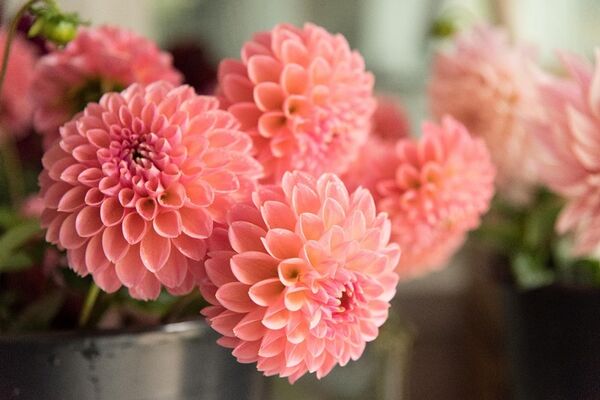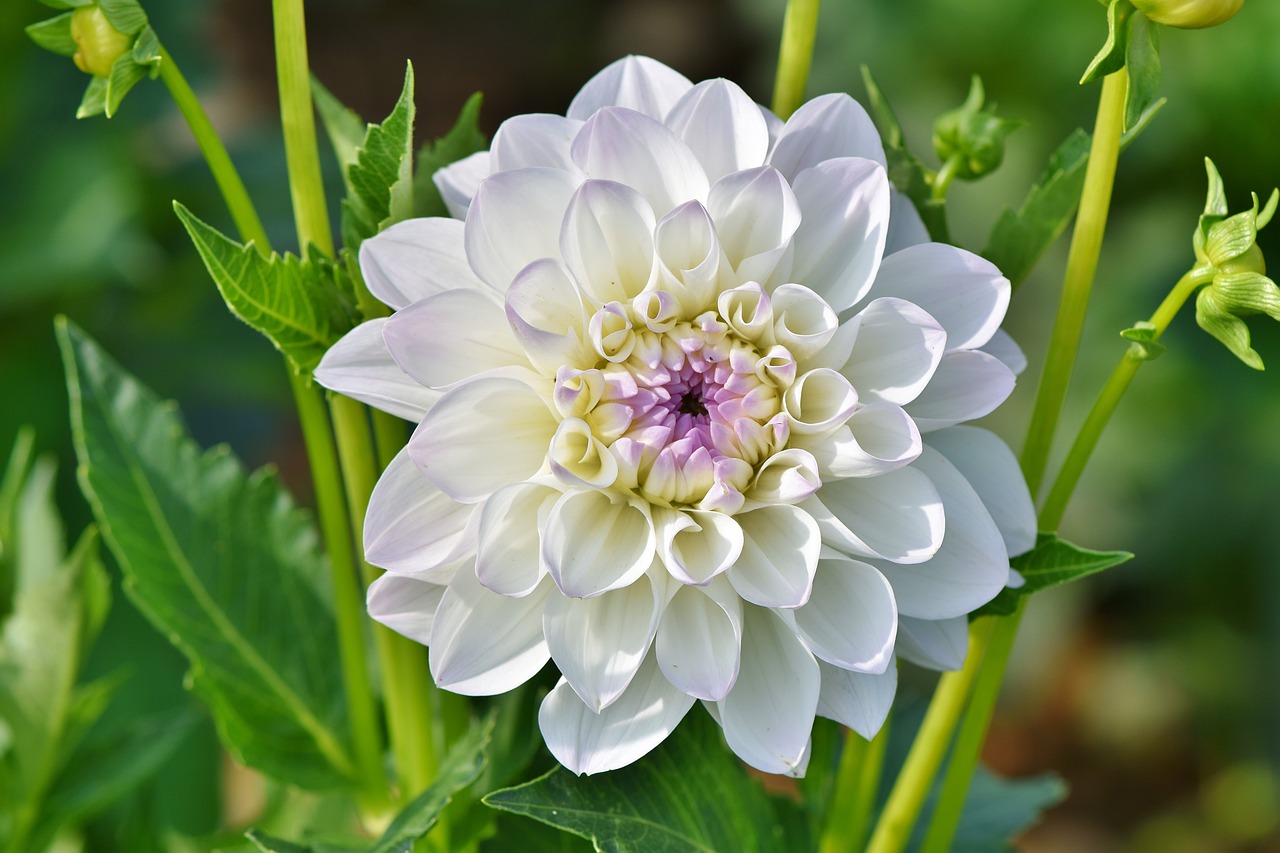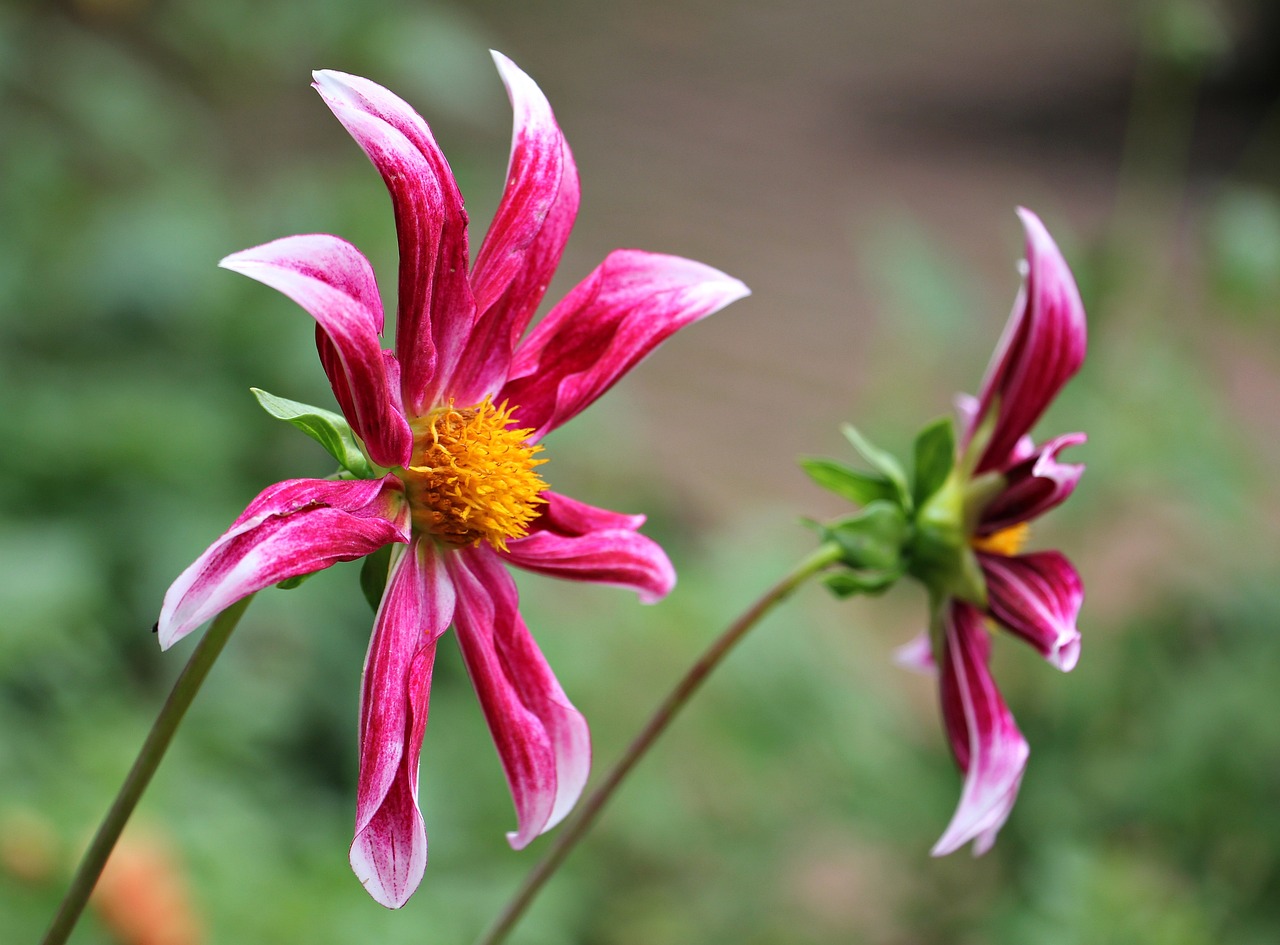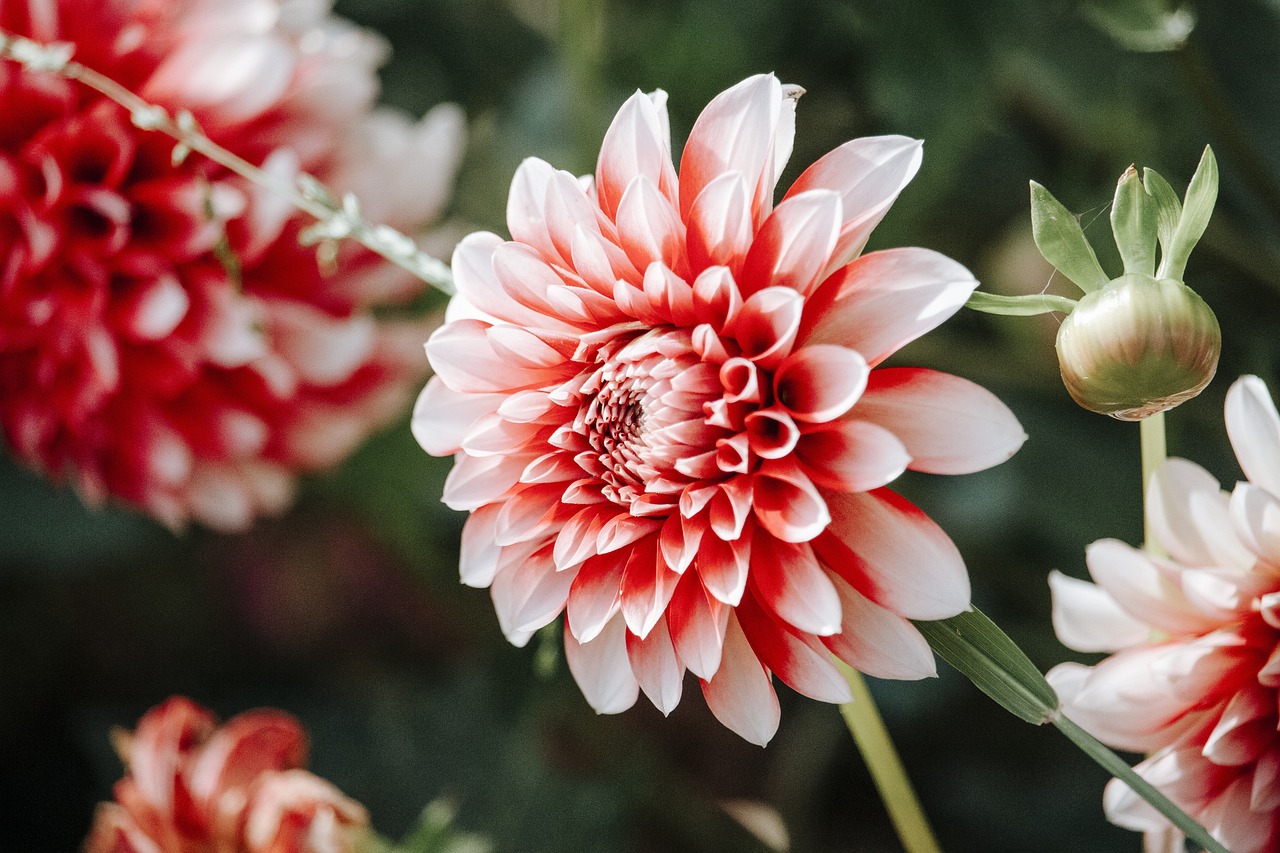Flower Q&A: All About Dahlias

Ah, the irresistible dahlia! Yielding breathtakingly gorgeous blossoms, the Dahlia pinnata from the Asteraceae botanical family is one tuberous flowering plant that has captivated gardeners and plant lovers for centuries. This isn’t surprising, for dahlias effortlessly brighten up any landscape with their eye-catching blooms and striking hues.
Growing dahlias is relatively straightforward. Just give them the right conditions and they’ll reward you with flamboyant flowers. Dahlias prefer rich, well-drained soil and will respond well to less frequent but deep watering. You can plant them in pots or straight on the ground. Cool to temperate climate is what they love. They need plenty of sun to produce flowers but extremely hot temperatures throughout their growing season may stress them. Six to eight hours of morning sun will be enough for dahlias. Protect them from strong winds, stake the tall growers, and feed them right.
Promote flowering by regularly cutting flowers. This one’s certainly an easy thing to do for they make beautiful cut flowers to display in vases.

But dahlia’s physical beauty isn’t the only thing that will make you smile. This attractive flower has some fascinating information about them. Let’s get to know dahlias better through this Q&A.
How Many Dahlia Species are There?
The American Dahlia Society recognises 42 dahlia species and more than 60,000 named varieties.
Dahlias grow in a range of forms but the most common ones are ball dahlias with spiral-shaped petals and spherical blooms, cactus dahlia with a starburst shape, mignon dahlias with ray florets, orchid dahlias with spaced petals surrounding a central disc, and pompom dahlias with a perfectly round shape and curved petals.
What Colours do Dahlias Come in?
From creamy white and pale pinks to crimson red, sunny yellow, and regal purple, you’ll see dahlias in just about every colour you can think of. You can also find bi-colour dahlias and those with variegated petals.

Dahlia blooms in a rainbow of colours and colour combinations except for blue. Breeders are yet to find a way to create blue dahlias.
What Sizes do Dahlias Come in?
With the thousands of varieties, expect to see dahlias in different forms and sizes – from tiny to giants. Dwarf varieties are about 35cm small, and giant varieties can grow up to 5 feet tall.
Dinnerplate dahlias are large dahlias that produce blooms measuring about 10-inches across.
When and Where was a Dahlia Flower Discovered?
On official records, 16th-century Spanish botanists were the first to notice dahlias growing wild in Mexico. The first drawings of dahlias were published in 1651 and depicted what we know today as Dahlia imperialis or Tree Dahlia.
In 1789, dahlias were brought to the Royal Botanic Gardens of Madrid and were given the name ‘dahlia’ after Swedish botanist Anders Dahl. It was Antonio Jose Cavarilles of the Royal Gardens of Madrid in Spain who received them and from those he grew three new dahlias: Dahlia pinnata, Dahlia rosea, and Dahlia coccinea.

The Aztecs, though, were the first actually to identify and grow dahlias. The Badianus manuscript of 1582 has dahlia recgonised as an Aztec herbal used to treat urinary disorders. Dahlia was then known by Aztecs as cocoxochitl, which means water pipe.
What Were the First Dahlias?
The year 1815 was the time when the first double-flower dahlias were bred. The first dahlias in Europe were grown in Poland.
What Does a Dahlia Symbolise?
According to the Language of Flowers, dahlias signify love and lasting commitment. It was considered a romantic flower during the Victorian era and was the bloom of choice by couples.
Today, dahlias are seen as a flower that epitomises grace under pressure. It speaks of inner strength and optimism. It is also a flower now associated with diversity because of its multilayered petal arrangement that makes up the whole flower head.
Other Flowers Of Interest
If you're intrigued by the diverse world of flowers and wish to delve deeper, we have more captivating reads for you. For those drawn to the subtle elegance of mauve hues, our post on Mauve Flowers explores the unique charm and uses of these gentle blossoms. Peony lovers will find a treasure trove of information in All There Is To Know About Peonies, a comprehensive guide to these lush, romantic flowers. And for an in-depth look at the versatile and vibrant Hydrangea, don't miss our feature, Flower on Spotlight: Hydrangea. Each article offers insights and inspirations to enrich your appreciation and knowledge of these stunning floral wonders.
Dahlias, with their splendid array of colours and forms, not only beautify our gardens but also carry a rich history and symbolism. From the vibrant hues of their petals to their varied sizes and shapes, they represent love, commitment, inner strength, and diversity. As they continue to captivate with their breathtaking beauty and fascinating backstory, dahlias remain a testament to nature's extraordinary ability to create wonders.
